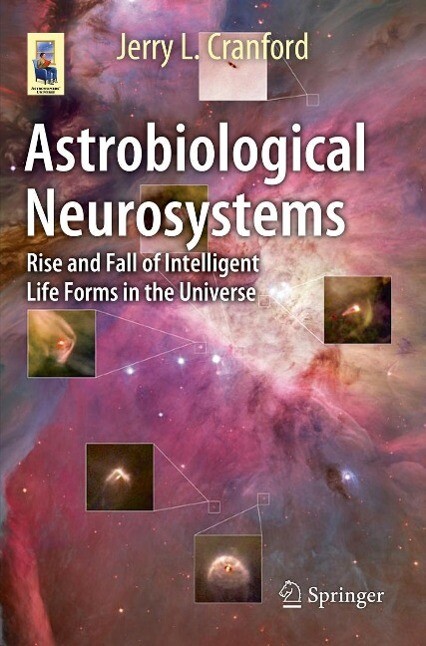Bücher versandkostenfrei*100 Tage RückgaberechtAbholung in der Wunschfiliale

Sofort lieferbar (Download)
This book explains why scientists believe that life may be more common in the Universe than previously considered possible. It presents the tools and strategies astronomers and astrobiologists are using in their formal search for habitable exoplanets as well as more advanced forms of life in other parts of our galaxy. The author then summarizes what is currently known about how and where organic molecules critical to our form of carbon-based life are manufactured.
The core of the book explains (and presents educated guesses) how nervous systems evolved on Earth, how they work, and how they might work on other worlds. Combining his knowledge of neuroscience, computers, and astrobiology the author jumps into the discussion whether biological nervous systems are just the first step in the rise of intelligence in the Universe.
The book ends with a description from both the psychologist's and the neuroscientist's viewpoints, exactly what it is about the fields of astrobiology and astronomy that "boggles the minds" of many amateur astronomers and interested non-scientists.
This book stands out from other popular science books on astrobiology by making the point that "astro-neurobiologists" need to begin thinking about how alien nervous systems might work.
The core of the book explains (and presents educated guesses) how nervous systems evolved on Earth, how they work, and how they might work on other worlds. Combining his knowledge of neuroscience, computers, and astrobiology the author jumps into the discussion whether biological nervous systems are just the first step in the rise of intelligence in the Universe.
The book ends with a description from both the psychologist's and the neuroscientist's viewpoints, exactly what it is about the fields of astrobiology and astronomy that "boggles the minds" of many amateur astronomers and interested non-scientists.
This book stands out from other popular science books on astrobiology by making the point that "astro-neurobiologists" need to begin thinking about how alien nervous systems might work.
Inhaltsverzeichnis
Preface.- Scientists believe intelligent life may be more common in the universe than previously considered possible.- When will mankind achieve First Contact with extraterrestrial life forms.- If our nervous system is not the only one that exists in the universe, where are the others and how do we identify them?- Evolution of intelligent nervous systems on other worlds in the universe.- Are biological nervous systems just the first step in the rise of intelligence in the universe?.- Just how hostile is our universe to the development and survival of Life Forms?.- Some Final Thoughts from this amateur astronomer on mankind s imminent discovery that we are not alone in the Universe.- References and further suggested readings.- Index.
Produktdetails
Erscheinungsdatum
27. September 2014
Sprache
englisch
Auflage
2015
Seitenanzahl
204
Dateigröße
8,04 MB
Reihe
Astronomers' Universe
Autor/Autorin
Jerry L. Cranford
Verlag/Hersteller
Kopierschutz
mit Wasserzeichen versehen
Produktart
EBOOK
Dateiformat
PDF
ISBN
9783319104195
Entdecken Sie mehr
Pressestimmen
The quintessence of this book is whether there possibly exist brains (central nervous systems) on other planets that might work the same or entirely differently from those found on Earth. For astro-neurobiological educated guesses, surmises, and ideas, this book is the first of its kind and offers a good read. (P. Chapman-Rietschi, The Observatory, April, 2016)
The illustrations are excellent, and there is an extensive bibliography. Most of the subjects are covered in many other books, but the discussion of neurosystems is original and insightful. Summing Up: Recommended. General readers, lower- and upper-division undergraduates. (T. Barker, Choice, Vol. 52 (12), August, 2015)
Bewertungen
0 Bewertungen
Es wurden noch keine Bewertungen abgegeben. Schreiben Sie die erste Bewertung zu "Astrobiological Neurosystems" und helfen Sie damit anderen bei der Kaufentscheidung.









